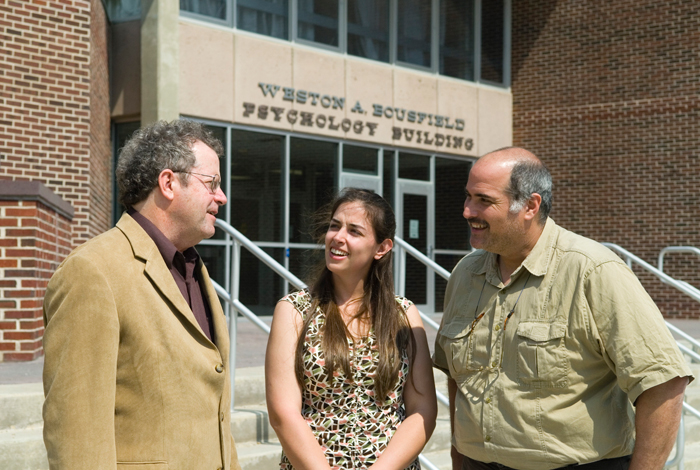
UConn’s psychology researchers rank second in the nation for federal research funding, according to the National Science Foundation, with more than $15 million in federal research grants in 2008, the most recent available data.
The number one slot is held by Pennsylvania State University.
The Department of Psychology at UConn ranks fourth nationally in all research funding, including grants from state and private sources as well as federal funding, according to the NSF. In the ranking for all research expenditures, only Penn State, the University of Texas M. D. Anderson Cancer Center, and the University of Houston rank above UConn.
Faculty who have received significant grants in total dollar amount of funding include professors Seth Kalichman, Jeffrey D. Fisher, Deborah A. Fein, Blair Johnson, Harvey Swadlow, Letitia Naigles, John Salamone, and associate professor Kerry Marsh.
Top UConn researchers are helping the academic world and the wider community understand the nature of autism, social relations, language acquisition, learning, brain function, and some of the more compelling aspects of human and animal psychology.
“The psychology department is especially proud of the opportunities that these grants provide to our students, because we value both graduate and undergraduate education,” says Charles Lowe, chair of the psychology department in the College of Liberal Arts and Sciences.
He said that areas of strategic growth for psychology research at UConn are neuropsychology, cognitive sciences, health psychology, developmental psychopathology, and quantitative research methods.
Although much of the grant monies are earned by faculty members, grant-funded research is done by graduate students and undergraduate students too. These students at UConn “are given amazing research opportunities (training and experience) through the grants that faculty members receive,” Lowe says.
In FY10, graduate students produced 552 research products (an average of 4.42 research products per graduate student); and graduate students appeared as co-authors or co-presenters on research publications or conference presentations 531 times, according to psychology department records.
Additionally, 454 undergraduate students were involved in individualized research projects (working directly with faculty and graduate students); and undergraduates appeared as authors, presenters, co-authors, or co-presenters 125 times.
More than 90 percent of the psychology faculty at UConn include undergraduates in individualized research projects each year.
“Some of these projects are heavily grant funded, some are moderately grant funded, and some are minimally grant funded; yet it is truly a collective effort, with nearly all faculty members contributing to undergraduate individualized research courses,” Lowe says.
The research done by undergraduate and graduate students contributes to the body of knowledge in their respective fields within psychology, while helping students’ career growth. The training and the chance to publish in prestigious journals give psychology students at UConn an edge when competing against students across the nation for other advanced degree programs and academic positions.


